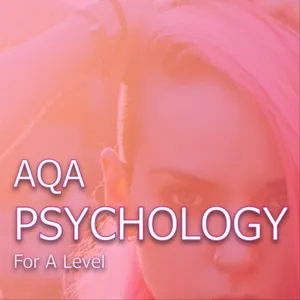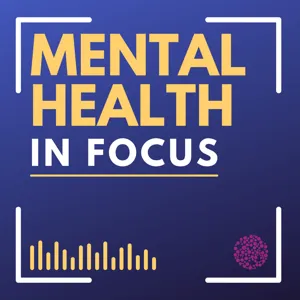Podcast Summary
Cognitive factors in Anorexia Nervosa: Anorexia Nervosa involves cognitive distortions, including distorted body perceptions, irrational beliefs, and cognitive inflexibility, leading to preoccupations with food, body shape, and weight, maladaptive behaviors, and a vicious cycle of unrealistic goals and starvation.
The cognitive explanations provide valuable insights into the causes of Anorexia Nervosa. This eating disorder is characterized by cognitive distortions, including disturbed perceptions about body shape and weight, irrational beliefs that defy logic, and cognitive inflexibility. People with Anorexia Nervosa filter their experiences through these factors, leading to preoccupations with food, body shape, and weight, as well as maladaptive behaviors like food restriction and excessive mirror checking. They may misinterpret emotional states as feelings of being fat and overestimate their body size and weight. Irrational beliefs, such as perfectionism, contribute to automatic negative thoughts and a vicious cycle of unrealistic goals and starvation. Cognitive inflexibility makes it difficult for individuals with Anorexia Nervosa to switch between tasks or adapt their thinking to changing situations, leading them to persist in their weight loss efforts despite the negative consequences. Overall, understanding these cognitive factors can help in developing effective treatments for Anorexia Nervosa.
Body image and perfectionism's impact on anorexia nervosa: Studies suggest individuals with anorexia nervosa have distorted body perceptions and a link to childhood perfectionism, but research findings are inconsistent
The perception of body image and perfectionism play significant roles in the development and maintenance of anorexia nervosa, although the accuracy of these perceptions can be distorted. Research suggests that individuals with anorexia nervosa have disturbed perceptions when attending to their own bodies, as shown in a study by Satchdev et al. (2008) where anorexia nervosa participants showed less brain activity than non-anorexia nervosa participants in certain areas involved in attention. Additionally, perfectionism, particularly in childhood, has been linked to the onset of anorexia nervosa, according to a study by Halmi et al. (2012). However, the validity of this link may be questionable due to the retrospective nature of the study and potential recall bias. Furthermore, contradictory research exists, such as the study by Cornelison et al. (2013) which found no difference in body perception between women with and without anorexia nervosa. Overall, the complex relationship between body image, perfectionism, and anorexia nervosa highlights the need for further research to better understand these underlying factors.





